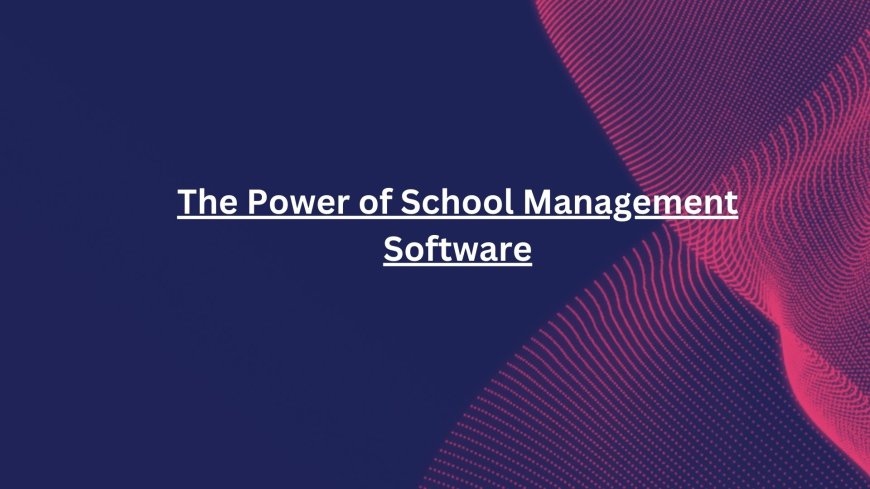The Vital Role of Vocational Education in Today's World

In the ever-evolving landscape of education and employment, vocational education stands out as a pivotal component that bridges the gap between academic learning and practical skills. As industries rapidly change and new technologies emerge, the demand for a skilled workforce becomes more pronounced. Vocational education, with its focus on hands-on training and real-world applications, offers a pathway to career readiness and personal fulfillment. This blog explores the importance, benefits, and challenges of vocational education, highlighting its crucial role in shaping the future workforce.
Understanding Vocational Education
Vocational education, also known as career and technical education (CTE), refers to instructional programs that focus on the skills required for a particular job function or trade. Unlike traditional academic education, which often emphasizes theoretical knowledge, vocational education is designed to provide students with practical experience and specific competencies needed in the workforce.
Key Components of Vocational Education
1. Skill Development
- Hands-On Training: Emphasizes practical skills and real-world applications.
- Industry-Relevant Competencies: Focuses on the specific skills required by various industries, such as healthcare, engineering, information technology, and trades like plumbing and electrical work.
2. Industry Partnerships
- Collaborative Programs: Often developed in partnership with local businesses and industries to ensure alignment with current workforce needs.
- Apprenticeships and Internships: Provide students with opportunities to gain real-world experience through on-the-job training.
3. Certification and Credentialing
- Recognized Qualifications: Offers certifications and credentials that are recognized and valued by employers.
- Licensing: Prepares students for required licensing exams in regulated professions.
Benefits of Vocational Education
1. Career Readiness
- Job Placement: Graduates are often ready to enter the workforce immediately, reducing the time and cost associated with traditional four-year degrees.
- Employer Demand: Many industries face skill shortages, and vocational education addresses these gaps by providing well-trained workers.
2. Economic Impact
- Economic Mobility: Provides opportunities for individuals to secure well-paying jobs and achieve economic stability.
- Workforce Development: Contributes to the overall development of a skilled workforce, boosting local and national economies.
3. Personal Fulfillment
- Practical Learning: Appeals to students who prefer hands-on learning over traditional classroom settings.
- Career Satisfaction: Enables individuals to pursue careers that align with their interests and strengths, leading to greater job satisfaction.
4. Flexibility and Accessibility
- Diverse Pathways: Offers various educational pathways, including short-term certificates, diplomas, and associate degrees.
- Accessibility: Provides options for students of all backgrounds, including those who may not have the means or desire to pursue a four-year college degree.
Challenges and Considerations in Vocational Education
Despite its many advantages, vocational education faces several challenges:
1. Perception and Stigma
- Misconceptions: There is often a societal bias that views vocational education as a less prestigious alternative to traditional academic education.
- Awareness: Efforts are needed to raise awareness about the value and potential of vocational education.
2. Funding and Resources
- Financial Support: Adequate funding is crucial to maintain high-quality vocational programs and update equipment and facilities.
- Resource Allocation: Ensuring that vocational programs receive the necessary resources to provide comprehensive training.
3. Curriculum Relevance
- Industry Alignment: Vocational curricula must continuously evolve to keep pace with industry advancements and technological changes.
- Instructor Expertise: Recruiting and retaining qualified instructors with industry experience is essential.
The Future of Vocational Education
As the nature of work continues to evolve, vocational education is poised to play an increasingly important role in preparing the workforce of the future. Here are some trends and developments that will shape the future of vocational education:
1. Technological Integration
- Digital Skills: Incorporating digital literacy and advanced technologies such as artificial intelligence, robotics, and cybersecurity into vocational training.
- Online Learning: Expanding access through online and hybrid learning models, making vocational education more flexible and accessible.
2. Sustainability and Green Jobs
- Eco-Friendly Skills: Developing programs that focus on sustainable practices and green technologies, preparing students for careers in the growing green economy.
- Environmental Awareness: Integrating environmental education into vocational training to promote sustainable industry practices.
3. Global Collaboration
- International Partnerships: Building global partnerships to share best practices and create cross-border opportunities for students.
- Cultural Competence: Preparing students to work in diverse and international environments.
Conclusion
Vocational education is a vital component of the education system, offering practical and relevant training that meets the needs of both students and employers. By focusing on skill development, industry partnerships, and career readiness, vocational education provides a viable pathway to success in a rapidly changing job market. Overcoming challenges related to perception, funding, and curriculum relevance will further enhance the impact of vocational education, ensuring that it remains a key driver of economic growth and personal fulfillment.
As we look to the future, the integration of technology, sustainability, and global collaboration will continue to shape vocational education, making it an even more powerful tool for preparing the workforce of tomorrow. Embracing and investing in vocational education is not just a necessity for economic development but also a commitment to providing diverse and meaningful career opportunities for all.
What's Your Reaction?



















